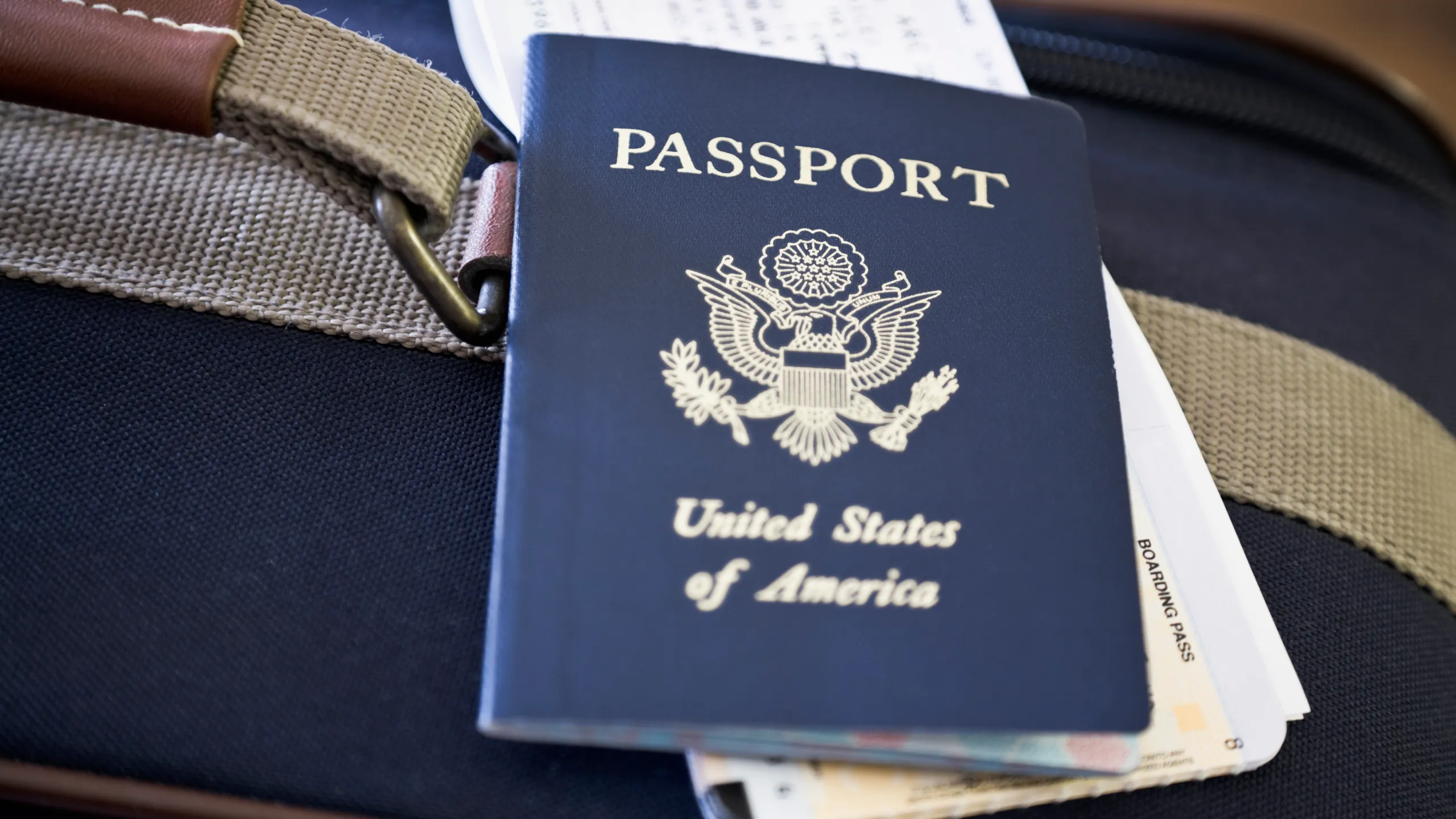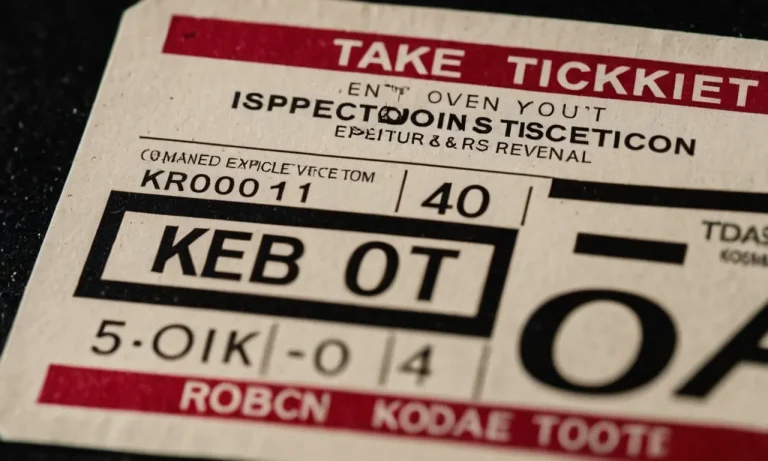Your passport number is an important personal identifier that should be kept confidential. But you may wonder, what could actually happen if it falls into the wrong hands?
If you’re short on time, here’s a quick answer to your question:
While your passport number alone can’t enable full identity theft, it can be used to support scams, illegal entry, and tracking your travel movements when combined with other information.
In this comprehensive guide, we’ll analyze the ways your passport number could potentially be misused, the steps you can take to protect it, and what to do if you suspect it has been compromised.
How Your Passport Number Could Be Misused
Facilitate travel document forgery
Your passport number is a crucial piece of information that can be misused by criminals to facilitate travel document forgery.
With your passport number, someone could create a fake passport or tamper with an existing one, making it appear as if they are you.
This can lead to serious consequences, including illegal border crossings, smuggling, or even terrorism.
It is important to keep your passport number confidential and report any suspicious activity involving your passport immediately.
Verify identity for criminal schemes
Another way your passport number can be misused is by criminals using it to verify their identity for various criminal schemes.
For example, someone could use your passport number to open bank accounts, apply for loans, or engage in fraudulent activities.
This can not only damage your credit and financial standing but also lead to legal troubles if these activities are traced back to you.
It is crucial to safeguard your passport number and be vigilant about any unusual financial or legal activities.
Cross-reference with stolen data for identity theft
Your passport number can also be cross-referenced with other stolen personal data, such as your name, address, and date of birth, to commit identity theft.
Identity thieves can use this information to impersonate you, apply for credit cards or loans in your name, or even commit crimes while using your identity.
It is essential to protect your passport number and regularly monitor your credit reports for any suspicious activity.
Track your international travel history
Lastly, your passport number can be used to track your international travel history.
This information can be misused by individuals or organizations with malicious intent, such as stalkers or cybercriminals.
They can potentially use this information to monitor your movements or target you for scams or other criminal activities.
It is important to be cautious about sharing your passport number and only provide it to trusted entities when necessary.
Scams and Fraud Enabled by Passport Number Access
While your passport number may seem like a harmless piece of information, it can actually be quite valuable to scammers and fraudsters.
In this section, we will explore some of the common scams and frauds that can be enabled by accessing someone’s passport number.
Employment fraud
One of the ways scammers can abuse your passport number is through employment fraud.
They may use your passport number to create fake identities or forge documents, allowing them to secure employment under your name.
This can lead to serious consequences, such as legal issues or financial loss if they engage in illegal activities while using your identity.
Utility bill fraud
Your passport number can also be used in utility bill fraud.
Scammers may provide your passport number as identification when setting up fraudulent utility accounts, such as electricity or water services.
This can result in you being held responsible for unpaid bills or even facing legal consequences for services you never used.
Tax and financial fraud
When it comes to tax and financial fraud, your passport number can serve as a key piece of information for scammers.
They may use it to file false tax returns, open fraudulent bank accounts, or apply for loans and credit cards in your name.
These activities can not only damage your credit score but also leave you dealing with the aftermath of financial loss and identity theft.
Romance and lottery scams
Scammers often target individuals through romance or lottery scams, and having access to your passport number can make their scams more convincing.
They may use your passport number to create a sense of legitimacy, making it appear as if you have won a lottery or are involved in a romantic relationship.
This can lead to emotional manipulation and financial loss as scammers exploit your trust and goodwill.
It is important to be cautious and protect your passport number to prevent falling victim to these scams and frauds.
Be mindful of who you share your passport number with and ensure that you only provide it to trusted entities and organizations.
If you suspect that your passport number has been compromised, it is crucial to report it to the appropriate authorities and take steps to safeguard your identity.
Steps to Protect Your Passport Number
1. Don’t share number unless absolutely necessary
Your passport number is a sensitive piece of information that should be treated with utmost care.
One of the most important steps to protect it is to refrain from sharing your passport number unless it is absolutely necessary.
Be cautious when asked to provide your passport number, especially online or over the phone.
Always verify the legitimacy of the request and ensure that it is from a trusted source.
2. Check documents before copying/sharing
Before copying or sharing any documents that contain your passport number, take a moment to double-check them.
Make sure you are only providing the necessary information and that your passport number is not visible or easily accessible to others.
Be cautious when sharing documents electronically, as they can be easily intercepted or accessed by unauthorized individuals.
3. Store physical passport securely
When you are not traveling, it is crucial to store your physical passport in a safe and secure location.
Consider investing in a locked drawer, a safe, or a security box to protect your passport from theft or unauthorized access.
Keep in mind that losing your passport can lead to identity theft and other serious consequences, so it is essential to take proper precautions.
4. Use RFID blocking sleeve or pouch when traveling
With the advancement of technology, some passports now come with RFID (Radio Frequency Identification) chips embedded in them.
These chips store your passport information electronically, making it vulnerable to unauthorized scanning.
To protect your passport from such risks, consider using an RFID blocking sleeve or pouch.
These specially designed accessories prevent the unauthorized scanning of your passport while you are traveling.
By following these steps, you can significantly reduce the risk of your passport number falling into the wrong hands.
Remember, it’s always better to be cautious and take preventative measures to safeguard your personal information.
What to Do if Your Passport Number is Compromised
If you suspect that your passport number has been compromised, it is important to take immediate action to protect yourself from potential identity theft and fraud.
Here are some steps you can take:
Contact government passport agency to report issue
The first thing you should do is contact the passport agency of your country to report the issue. They will be able to guide you on the necessary steps to take to protect your identity.
It is important to provide them with all the relevant information and details about the incident so that they can investigate the matter further.
Place fraud alert and monitor your credit
Placing a fraud alert on your credit reports is another important step to take.
This can help prevent unauthorized access to your financial accounts and alert you to any suspicious activity.
You can contact one of the major credit bureaus to place a fraud alert, and they will notify the other bureaus on your behalf.
Additionally, it is crucial to monitor your credit reports regularly to identify any unauthorized activity.
File police report for identity theft
If you believe that your passport number has been used for fraudulent purposes, it is advisable to file a police report.
This will provide an official record of the incident and help law enforcement agencies in their investigation.
Make sure to provide them with all the necessary documentation and evidence to support your claim.
Update to new passport number as needed
Depending on the severity of the situation, it may be necessary to update your passport number.
This can be done by applying for a new passport and providing the required documents and fees.
It is crucial to inform the passport agency of the compromised passport number and follow their instructions on obtaining a new one.
Preventing Future Passport Number Theft or Misuse
Regularly check credit reports and statements
One of the best ways to prevent future passport number theft or misuse is to regularly check your credit reports and statements.
By doing so, you can quickly identify any suspicious activity and take immediate action.
Keep an eye out for any unfamiliar accounts, charges, or inquiries that could indicate someone is using your passport number without your knowledge.
If you notice anything suspicious, contact the credit reporting agencies and your financial institutions right away to report the issue and prevent further damage.
Use strong unique passwords
Another important step in preventing passport number theft is to use strong, unique passwords for all your online accounts.
Avoid using easily guessable passwords like your birthday or the word “password.” Instead, create passwords that include a mix of letters, numbers, and special characters.
Additionally, it’s crucial to use a different password for each account to minimize the risk of a hacker gaining access to multiple accounts if one password is compromised.
Consider using a reputable password manager to help you generate and store complex passwords securely.
Beware of phishing emails and links
Phishing emails and links are a common tactic used by scammers to trick people into providing sensitive information, including passport numbers.
Be cautious when opening emails or clicking on links from unfamiliar sources, especially if they ask for personal information or direct you to enter your passport details on a website.
Legitimate organizations will rarely ask for your passport number via email.
If you’re unsure about the authenticity of an email or link, it’s best to verify the sender’s identity through a separate, trusted source before taking any action.
Shred unneeded documents with personal info
Properly disposing of documents that contain personal information, including your passport number, is essential to prevent theft.
Shredding unneeded documents ensures that sensitive information cannot be easily retrieved from the trash.
This includes old passports, expired identification cards, bank statements, and any other documents that contain personal details.
Investing in a cross-cut shredder can provide added security and peace of mind knowing that your personal information is effectively destroyed.
Conclusion
While your passport number alone can’t enable full identity theft, it should still be carefully protected.
Being aware of the potential risks, taking proactive security steps, and knowing how to respond if compromised can help you reduce the chances of passport number misuse.







